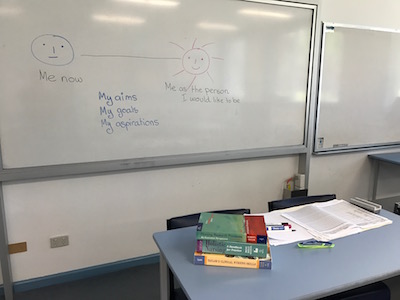The Development Of A Positive Self-Esteem In Adult Learners
Self-esteem is important for positive learning and personal development. McLeod (2011) writes that the idea of self-concept is crucial to the person-centred-approach.
Today, perhaps more than ever before, matured-aged students have been exposed to a range of social and personal experiences such as loss of employment, family breakdowns and personal problems all which have wounded their ego and distorted their personal view of self.
Self-concept can be described as an awareness of the mental and physical attributes that make the person. Lawrence (2000) explains that self-concept consists of the person’s self-image, his/her ideal self and self-esteem: it is the relationship between the person that I am and the person I would like to be that determines the person’s overall self-concept.
For example, a student may see him/herself as a capable person able to deal with most life tasks. However, in class, the same student may see him/herself to be not as academically capable as they would like to be.
This discrepancy between the self-image and the ideal self, could lower their self-esteem and affect the general picture that the student has of him/herself.
The greater the discrepancy between the self-image and the ideal-self, the lower will be the person’s self-esteem. Lawrence (2002) also writes, “The research indicates that self-esteem and intellectual attainment are inextricably linked, with both affecting and influencing each other” (p. xiii). A. Rogers and Horrocks (2010) and Mariam, Caffarella and Baumgartner (2007) point out that a student who fails may lose confidence in their academic skills and consequently their overall self-esteem.
They also discuss the importance of developing and encouraging students to develop and maintain great self-efficacy by enhancing the person’s control over their own life.
Bundura (1994) defines self-efficacy as “…people’s beliefs about their capabilities to produce designated levels of performance that exercise influence over events that affect their lives” (p1).
If a student feels that they have control over their life, their sense that they are in charge of their feelings and emotions will give them a better sense of self and ultimately, enable them to develop the confidence and the ability to be the person they would like to be.



 By
By